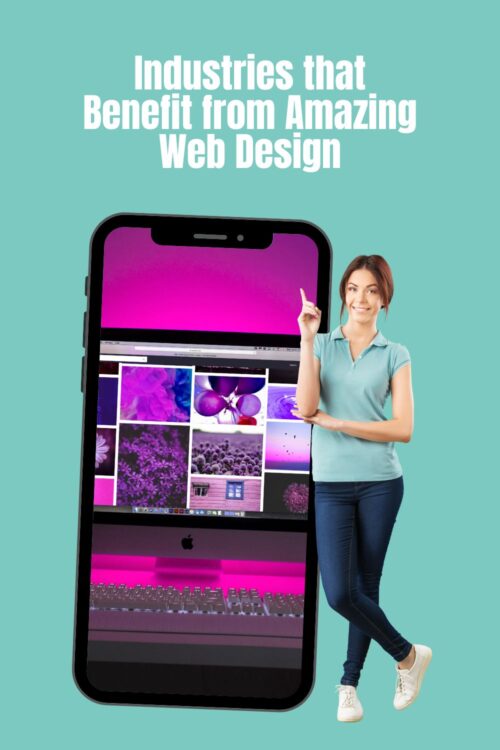Any product design services company can easily tell you that 3D printing, or additive manufacturing, has a massive influence on product design and manufacturing. Many product design companies tell us that technology is changing the way things are produced and how things are designed and how business is settled.
As technology keeps on improving, Designstein Studios, a product design and development company believes that the availability of materials will grow, and the cost of getting involved with the technology is declining.
Clients of product design services are aware that 3D printing is everywhere in our day-to-day lives, and some do not even realize it yet. Some individuals consider additive manufacturing as a type of niche technology and may be shocked to learn of the range of industries that are routinely using it.
Professionals of product design services predict that every commercial airliner will probably be using 3D printed parts in the next ten years. It is currently being used in the medical industry, in automobiles, industrial manufacturing, prototyping, and for end-use parts in many types of industries.
Additive techniques provide extra efficiency that has a transformative effect on the product design workflow. In a nutshell, additive manufacturing is altering how products are manufactured. Furthermore, it is also changing where these products are made.
3D printing is the reason why we are witnessing a global economic shift, which is seeing a manufacturing comeback in the United States.
Onshoring Manufacturing
Everybody knows that U.S manufacturing has gone through a dramatic slump over the past decades as companies move overseas to benefit from lower labor costs. For instance, a tool that is made in China or Vietnam can cost between $10,000 to $50,000 less than a tool made in the U.S or other wealthy countries, mainly because employees are compensated less.
This has caused a few issues; however, the long distances involved in product development have led to specific obstacles. These challenges include extensive lead times, high import and export costs, shipping costs, and inventory costs. Combined with sole-sourced suppliers and the issue of working with manufacturers that are far and usually never seen in person has shaped a less than perfect situation for new product design.
Apart from this, consumer consciousness about problems such as climate change and a need to support local businesses have provided an additional type of moral incentive for companies that can manufacture domestically.
Outsourcing
In-house additive manufacturing technology continues to prove it has the availability and capabilities to grow further. 3D printers can make working prototypes and end-use parts. It is being chosen by companies in all types of industries and by people and independent designers for use in their own homes and businesses more and more. This way forward will definitely carry on, as the cost of the technology keeps declining.
With all that mentioned, outsourced providers are still giving a useful service. The advantage that sticks out the most and is provided by outsourced 3D printing is that it lets individuals and companies connect to innovative technology that may usually not be so affordable. This is very helpful because of the rate at which technology is improving. Someone may put in a lot of money into what is now known as the most advanced system, only to see it being outperformed within a few years by something that is even more effective. At the same time, that system that they invested so much in is most probably is going to be less expensive than a few years from now.
For businesses that work in 3D printing services, the circumstances are a little bit different. It is more logical to invest in the most up-to-date and advanced technology when that is the main operating source of your company. Strictly speaking, outsourcing gives a model which consists of less investment risk for everyone involved.
Growth of Additive Manufacturing for End-Use Parts
Soon enough, 3D printing will shift from a method of producing visual aids and prototypes to a technology that can manufacture end-use parts. Although some individuals think of 3D printing as something you only use to create models and trinkets, the truth is that additive manufacturing is now being utilized for functional parts in many different industries.
The general acceptance of 3D printing is more apparent in the aerospace and automotive industries. These were just a few of the first industries to approve 3D printing for end-use parts first, so they have gathered the most experience.
The fact that additive technologies can produce single, lightweight pieces with complicated internal geometries is very important for these industries.
Technologies such as Laser Sintering and Fused Deposition Modeling (FDM) give carte blanche for parts to print using almost or completely the same materials as production-grade materials used in conventional manufacturing. Metal printing is one of the most intriguing and priceless technology, and its use is growing enormously with a lot of applications throughout many industries. High-temperature plastics and rubber-like materials are also very much in demand for final production parts.
While carbon fiber 3D printing is growing in popularity for the automotive and aerospace industries. One of the most interesting developments in 3D printing has been the development of bio-based materials for use in the medical industry. Besides the fact that 3D printing can produce FDA-approved materials for medical applications, engineers can 3D print stem cells, artificial blood vessels, and even miniature organs for testing vaccines. 4D printing is also going beyond the boundaries of additive technology.
Designstein Studios Can Set You Up With 3D Printing Services
If you feel that your product is ready to benefit from outsourcing 3D printing, Designstein Studios can help. They can connect you with the best U.S. manufacturers for any scale of production or prototyping. Also, you can opt for 3D CAD design and 3D printing design services so you can create the 3D printable files required to bring your product design existence. Call at 714.375.4846 or request a quote here.



